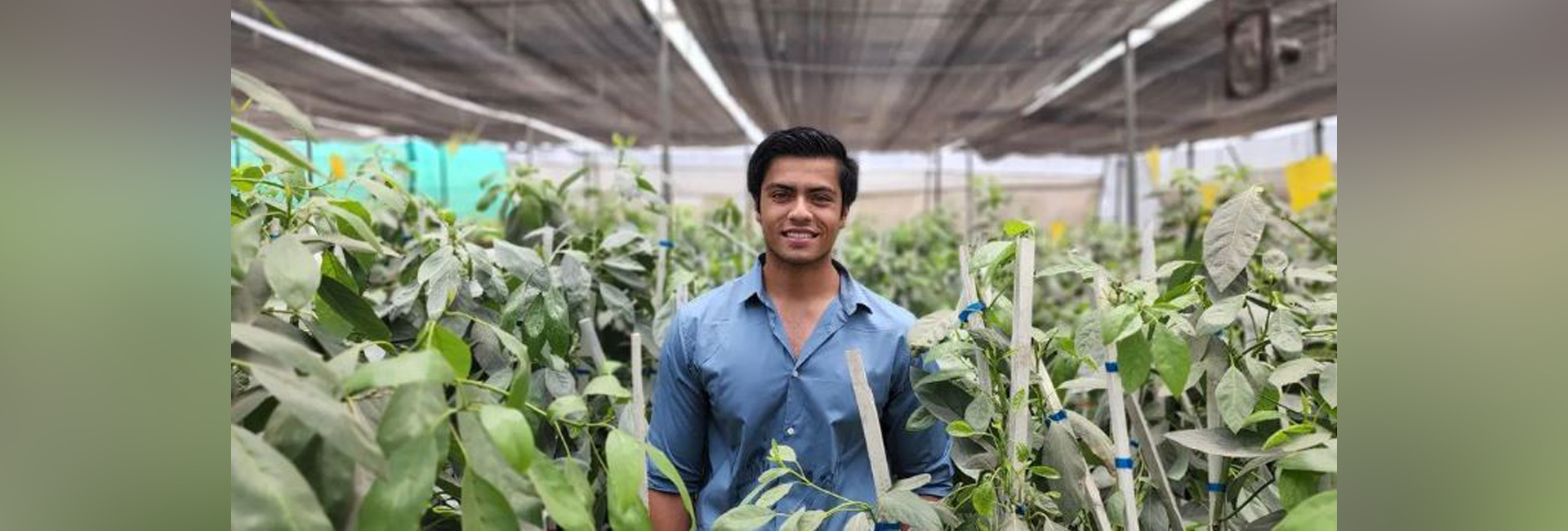(October 7, 2023) “Yeh app nahi, aandolan hai,” a farmer remarked to Neetu Yadav and Kirti Jangra, the co-founders of ‘Animall’. After struggling for over a month, the farmer had just sold three cows within 24 hours through the easy-to-use app. What started as a weekend project back in August 2019 had become what its co-founders had always envisioned – disruptor. Four years later, the company is a top-funded VC startup, boasts an annual income of Rs 565 crore, and has facilitated the buying and selling of 8.5 lakh animals worth Rs 4000 crore, across the country.

Neetu Yadav and Kirti Jangra. Photo: Forbes
A new bond
Neetu Yadav (26) and Kirti Jangra (27) met soon after they each arrived at IIT-Delhi. For Neetu in particular, it was the start of a brand-new life. She was leaving behind the tiny, rural farming community she called home, and finally transcending its rural mentality. Her father was often advised not to invest in his daughter’s education, but he “always treated her like a son,” he said in an interview. And Neetu wanted to be someone. “With the help of many people, including my uncle, I went to Kota to study,” she says. “Out of 100 people in my batch, I was the only girl.” As it happened, Kirti also prepared at Kota, the Rajasthani city that is (in)famous for being a hub for IIT-JEE coaching centres, which has earned it the moniker, ‘Kota Factory. Neetu’s exposure to the outside world came from films, where she watched stories of young people going abroad to study. “The experience of being at IIT itself was a dream come true for me, I was going outside my hometown to study,” she says.
“Kirti was the first person I met,” says Neetu. A few hours later, they discovered they were going to be roommates. It turned out to be the start of an enduring friendship. “We had a cooler company for a few weeks,” they recall, laughing. “It was called Kirti-Neetu Cooler Company, we weren’t too creative with the name!” The idea came because of the old electrical system at IIT-Delhi. A regular cooler could blow the fuse for the entire campus. So, they decided to come up with a low-cost, low-voltage cooler. They took oil containers from the hostel kitchens and used them to make their cooler. “We thought we could make a lot of money selling and then realised the market was too small. But that was the first time we thought of building a startup together.
Building Animall
The cooler company didn’t take off but both young women were enterprising, and driven to make a social impact. Animall first took shape in August 2019 from a room in Bengaluru, where Neetu and Kirti were participating in a weekend hackathon. Organised by a storytelling organisation named Pratilipi, the hackathon theme was to build for one billion users. Neetu leaned into her own roots to get a better understanding of what the One Billion needs – she knew that the next one billion users meant millions who live in rural India. “Whenever you look at a farming family, there are just two aspects – agriculture and animal husbandry. Animal husbandry is mainly dairy,” Neetu says.
That’s how the Global Indians decided to create Animall and their five-member team went on to win both the jury and audience awards at the event. Neetu and Kirti wanted to grow Animall and used the Rs 2 lakh they received as prize money to fund their early operations. “We used it for marketing, servers etc,” she adds.
Animal husbandry contributes anywhere between five to seven percent of the national GDP. But in 2019, when Team Animall conducted extensive research across the country, interviewing thousands of farmers they realised that the sector is largely untouched by technology. In 2022, the gross value added from livestock within the agricultural industry was over seven trillion rupees but the trade of cattle continues to operate in a highly informal, fragmented, and disorganised ecosystem. Kirti and Neetu were both keen on making an impact and realised this was where they needed to be.
“Just the idea of trying to organise, trying to disrupt an unorganised market like this… the market is hungry for a platform like Animall,” says Kirti. They set about trying to create a user-friendly, one-stop-shop for cattle farmers. However, their idea was not well-received, either at home or by investors. “If you wanted to herd cattle, why did you go to IIT? We could have done that for you right here,” Kirti’s father joked when she first pitched the idea. Neetu’s family, who had pulled out all the stops to make sure their daughter made it to an IIT, was appalled by the thought of her quitting her job to build an app, that too an app for cows but resigned themselves to it saying, “But since you want to do this, how can we stop you.” Investors were skeptical too. “Who will download this,” they asked the co-founders. “Will people use this? Even their batchmates didn’t buy into it. “Do you think rural people will be able to download and use an app?”
Disrupting the market
They chose the herd, however, and shunned the herd mentality, and 10 million downloads later, their critics have more than retreated. “Build for Bharat is real,” Kirti insists. “Bharat is online.” Sequoia led a $6 million funding round for the fledgling company and they arrived on the scene. But they are not without challenges, even now.
Indian farmers are happy to hop onto the tech bandwagon, but buying and selling cattle is, at the end of the day, a hands-on process. It’s not easy to convince a seller who is far away, to invest in a cow he has never milked. That’s not all. Their market is in the heartland of rural North India, in states like Haryana and Jharkhand that are mired in patriarchy to the point where Neetu and Kirti find it hard to be taken seriously, simply because they are women. “Men have a larger network. To enter those rooms as women is very hard. We ignore the glass ceiling. We don’t make it the limit. We just do our thing,” Kirti says.
It has only taught them to think differently. “Our thought process has changed significantly,” says Neetu. “It’s okay to make mistakes, it’s okay to be wrong,” Kirti adds. “You just have to learn from it. We have taken short-term decisions and then realised, hey, this is not who we are, we want to plan for the long-term.” And above all, they value each other. “I think stereotypically, women friendships are underplayed,” Kirti remarks. “I think they bring a lot to your life. Just like bro-hood has its advantages, sisterhood has its advantages too.”
Read more about Animall on their website.





